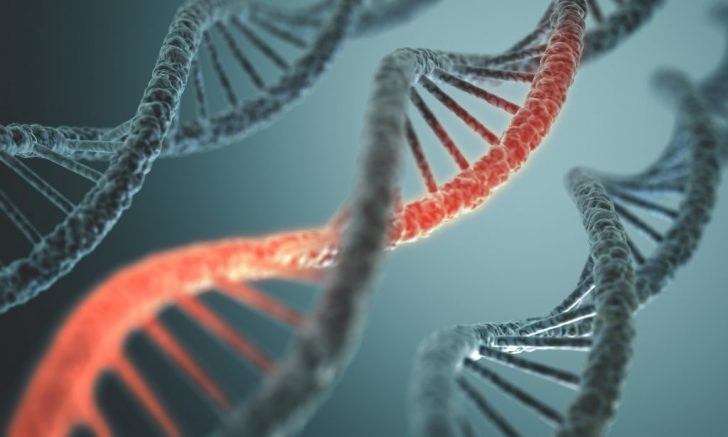
Did you Know the Major Causes of Lupus? Learn More About this Hard to Diagnose Disease here

While speaking of diseases, people typically don’t take into account how difficult some might be to spot. When going through a diagnosis, either self or by a medical professional, key symptoms are what one looks out for.
But, what to do when the symptoms of a disease are not visible to the naked eye? Lupus is one such disease that can affect literally any part of the body and still remain hidden for a long time. This is the truth for the almost 1.5 million Americans who live with some type of lupus.

Deposit Photos | Millions of people suffer from lupus without being aware
Lupus is an autoimmune disease. Basically, in such diseases, healthy cells and tissues start getting attacked by the infected person’s immune system. About 70 percent of the time, lupus is found in a major organ of the body, such as the kidneys, lungs, heart, or brain. The worst thing about the disease is that there are no causes or cures yet discovered for it.
All things considered, there has been ample research on the triggers of this immune system condition. Read on to find out the potential reasons for lupus that analysts are diving into and how to treat someone once they are diagnosed:
Biological Triggers
Heredity
An individual has a 20 times higher danger of getting lupus if they have kin with the illness. Many variations in genes have been connected with the development of the disease. Some doctors think that it is a two-way street wherein the lupus gene and lack of protective genes give way to the disease.
Race
Lupus is found twice to thrice as much in women of color, including Latinos, Hispanics, Native Americans, Asians, African Americans, and Pacific Islanders. A study conducted in 2014 also confirmed lupus to be found in 1 out of every 537 women of color.
Hormones
9 out of 10 women determined to have the disease are somewhere in the range of 15 and 44 years of age. One main explanation behind the disparity is that hormones like prolactin and estrogen may cause an inflammatory pathway known as type 1 interferon to go off balance.

Deposit Photos | Genes are a big determinant of lupus
Environmental Triggers
UV light
UV light can harm any individual’s cells; however, individuals with lupus react more sensitively to it. It has not been distinguished as an immediate reason for the disease, yet UV light can cause cells to modify themselves in a manner that is known to be a threat to the immune system.
Infectious diseases
Different viral diseases have been connected to lupus flares, including hepatitis A, herpes simplex infection, and human parvovirus. Epstein-Barr, the infection that causes mononucleosis, has been concentrated on specifically, and researchers believe that unusual immune system response is caused when antibodies are produced post-exposure.
Changes in atmosphere
Changes in the atmosphere, humidity, wind patterns, temperature, and barometric pressure are unequivocally connected with explicit types of organ flares in lupus. In any case, not one variable is related to all flares. For instance, pollution has been connected to lung flares, and temperature changes may affect neurologic flares and rashes, while moistness is related to joint flares.
How can lupus be cured?
When you’ve been determined to have lupus, your treatment will generally rely upon the seriousness of the infection. If you have gentle to direct manifestations, your primary care physician will probably begin you on antimalarial drugs, similar to hydroxychloroquine, to lessen torment, skin rashes, and different indications with an end goal to ensure organs and forestall harm to the body.

Deposit Photos | Lupus has no cure but it can be treated once diagnosed
Another choice is corticosteroids, which are regularly directed to assist patients with working through a flare since the medication works rapidly. All in all, lupus can be dubious to treat because there is no definitive cure to the disease, but doctors can help by providing medication that reduces its effects.
More in Health & Well-being
-
`
Here’s Everything You Need to Know About Open Relationships
An open relationship is a consensual arrangement where partners agree to engage in romantic or sexual relationships with other people. Unlike...
June 6, 2024 -
`
Explore the Multifaceted Goals of Meditation
What is the goal of meditation? If you have ever found yourself asking this question, you are not alone. Meditation has...
May 31, 2024 -
`
When is National I Love You Day Celebrated? Mark Your Calendar
Life can get hectic, and sometimes amidst the daily grind, we forget to express our love and appreciation for the phenomenal...
May 23, 2024 -
`
When’s the Best Time of Day to Fish?
For any angler, a successful fishing trip hinges on several factors. But one of the most crucial elements is timing. Knowing...
May 14, 2024 -
`
What Mental Illness Does Britney Spears Have? Discovering the Answer
Britney Spears, a name that resonates with millions around the globe, goes far beyond the glitz and glamour of her stardom....
May 7, 2024 -
`
Here Are Some Easy Ways To Say No To Unrealistic Expectations In Your Relationship
If you are in a relationship, you should constantly work on improving it. Some early lovebirds fall in love too quickly...
May 3, 2024 -
`
Therapy? Medication? What Are the Treatments for PTSD
Post-Traumatic Stress Disorder (PTSD) is a common after-effect of traumatic events. It can be a debilitating condition, but the good news...
April 25, 2024 -
`
Courting vs Dating – Which Relationship Path is Right for You?
In today’s fast-paced world, the terms ‘courting’ and ‘dating’ often swirl around in conversations about relationships. While some people may use...
April 23, 2024 -
`
Essential Mexico Travel Tips for a Seamless Adventure
Mexico, a land of vibrant culture, breathtaking landscapes, and mouthwatering cuisine, beckons travelers from across the globe. But before you embark...
April 16, 2024















You must be logged in to post a comment Login